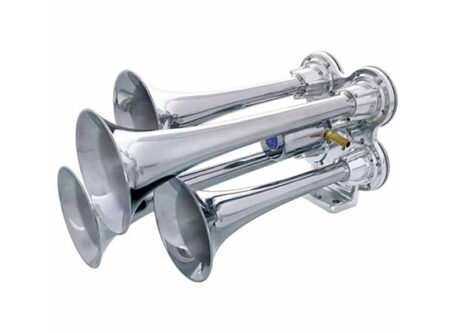Appeals court rules tolls are not taxes; Rhode Island must face toll lawsuit
The United States Court of Appeals for the First Circuit reversed a lower court’s decision to dismiss the American Trucking Associations’ case against Rhode Island for its truck-only tolls after the state invoked the Tax Injunction Act. The reversal allows ATA to proceed with its lawsuit.
At the heart of the case was whether or not tolls are taxes. If tolls are considered taxes, then the Tax Injunction Act would protect Rhode Island from lawsuits like ATA’s.
On Thursday, Dec. 5, the First Circuit court ruled that tolls are not taxes within the meaning of the Tax Injunction Act. Consequently, Rhode Island must face the challenge in federal court.
“We have long believed that Rhode Island’s RhodeWorks truck-only toll scheme was a violation of the Constitution and an attempt to use our industry as a piggy bank,” ATA CEO Chris Spear said in a statement. “Today’s decision by the First Circuit paves the way for us to make that argument in federal court, and we look forward to the chance to vindicate our case on the merits.”
Tax or fee?
Per the Tax Injunction Act, lawsuits that “enjoin, suspend or restrain” collection of state or local taxes, except where no “plain, speedy and efficient remedy” is available in state court are barred.
ATA said tolls are not taxes within that meaning. In its brief, ATA states the dismissal “departs from the language, history, policy and consistent judicial construction of the Act.”
Backing its position, ATA claims that applying the Tax Injunction Act to tolls is unprecedented.
However, Rhode Island claimed during oral arguments that the truck-only toll is a tax under the San Juan Cellular test, arguing a “general public purpose” for the tolls. The San Juan Cellular test considers three factors:
- The classic “tax” is imposed by a legislature upon many, or all, citizens. It raises money, which is contributed to a general fund and spent for the benefit of the entire community.
- The classic “regulatory fee” is imposed by an agency upon those subject to its regulation. It may serve regulatory purposes directly by, for example, deliberately discouraging particular conduct by making it more expensive. Or it may serve such purposes indirectly by, for example, raising money placed in a special fund to help defray the agency’s regulation-related expenses.
- For close cases somewhere in between, the focus should be on the ultimate use of the collected money, whether it is used for a general benefit or simply for defraying the cost of a regulation.
“Here’s the problem with that argument,” Judge Sandra Lynch said during oral arguments. “Every time the government raises money by any mechanism whatsoever, almost by definition it’s for a public purpose. That’s just impossibly broad. That cannot be the test. That is not what Congress said in the Tax Injunction Act.”
Definition of a tax in Tax Injunction Act
The First Circuit points out that there is no definition of the word “tax” within the Tax Injunction Act. The court had to look for the word’s ordinary meaning at the time Congress enacted the statute. The Tax Injunction Act was enacted in 1937.
“When we look at whether the word ‘tax’ was then understood to include tolls, we find something of a mixed bag, albeit one quite heavily loaded in favor of treating tolls as something other than taxes,” the First Circuit stated in its ruling.
The court went on to explain that at least six pre-1937 cases questioned whether a toll is a tax. In all six of those cases, the court held that a toll is not a tax.
A Supreme Court ruling determined that river tolls are not taxes for purpose of a due process challenge.
Thomas Cooley’s treatise The Law of Taxation, published in 1876, was also cited. Still cited by the Supreme Court as recently as 1981, the treatise states the following:
A ‘toll’ is a sum of money for the use of something, generally applied to the consideration which is paid for the use of a road, bridge or the like, of a public nature. The term ‘toll,’ in its application to the law of taxation, is nearly obsolete. It was formerly applied to duties on imports and exports; but tolls, as now understood, are applied most exclusively to charges for permission to pass over a bridge, road or ferry owned by the person imposing them. Tolls are not taxes. A tax is a demand of sovereignty; a toll is a demand of proprietorship.
A definition of “toll” in Black’s Law Dictionary at the time was consistent with Cooley’s treatise.
“Having considered text, purpose and our own precedent, we find no compelling reason to complicate the distinction that likely prevailed in 1937: charges fairly described as tolls are not taxes under the Tax Injunction Act,” the First Circuit ruled.
From here, the case will be sent back to the federal district court in Rhode Island for further proceedings.









